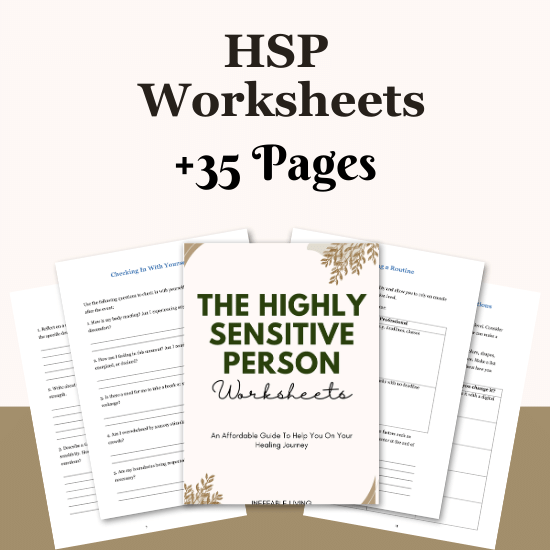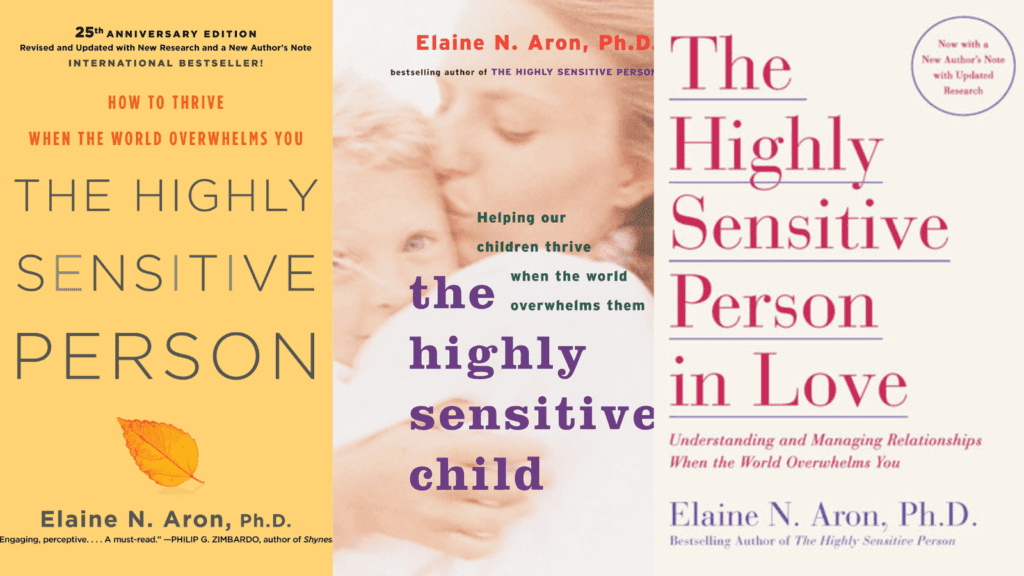If you experience anxiety and identify as a Highly Sensitive Person (HSP), you might have been told that you’re “too sensitive.”
Sensitivity was labeled as a weakness, an undesirable trait in a society that idealizes toughness and emotional resilience.
Understanding Sensitivity and Shame
How do you view your sensitivity?
Do you hate that part of yourself?
Are you ashamed of your deeply feeling heart?
Do you compare yourself to others and wish you could adopt an “I don’t care” attitude?
This internal war with yourself can be costly.
But ask yourself, how many people wish their parents didn’t care, didn’t listen, or didn’t express love?
Would the world be better with leaders who are insensitive to the concerns of others?
Empathy is crucial for raising emotionally healthy children.
We need sensitive individuals to sound the alarm before it’s too late, to heal, to dream, to observe, and to create.
We need people who can express emotions through art, music, writing, and help others connect with their feelings.
Related: Top 9 Highly Sensitive Person Coping Strategies [HSP’s Survival Guide]
Embracing Sensitivity as a Gift
Highly sensitive people (HSPs) are essential to a balanced society.
Sensitivity is not a flaw but a trait you were born with.
Whether you believe in God, evolution, or both, there’s a reason you are this way.
Our ancestors needed both fearless adventurers and sensitive strivers to survive.
They needed people to protect the children, plan for the future, and create beauty in their environment.
Similarly, our modern society needs both extroverted leaders and introverted thinkers.
Sensitivity requires extra time for rest and processing, but it is not a weakness. It’s a difference.
When you let go of the cultural shame around sensitivity, it becomes one of your greatest strengths.
Related: Top Resources For Highly Sensitive Person (Tests, Support Groups, Books, Workbooks, Blogs, etc.)
The Four Gifts of Highly Sensitive People
1. Emotional Sensitivity
HSPs experience intense emotions and are deeply affected by others’ emotions.
They are empathetic, compassionate, and can manage conflicts effectively.
Their ability to connect with emotions helps in creative and artistic expressions.
2. Sensory Sensitivity
HSPs are more sensitive to sensory stimuli like loud noises, bright lights, and strong smells.
They are alert to danger and notice problems early on.
They may thrive in quiet environments, solving complex and nuanced problems.
Related: Best 30 Journal Prompts For Highly Sensitive Person
3. Depth of Processing
HSPs process information deeply and thoroughly, reflecting on experiences for longer periods.
They often have a rich inner world of thoughts and feelings.
This depth helps them discover unique solutions to problems and benefit significantly from self-work or therapy.
4. Intuition
HSPs have a strong sense of intuition, picking up on subtle cues from their environment and others.
They make good decisions and navigate complex situations effectively.
Guided by a strong sense of ethics, they often have a deep commitment to justice and fairness.
Related: Best 10 Highly Sensitive People Books
How to Let Go of Shame as an HSP (Highly Sensitive Person)?
Have you been told that you’re too sensitive or not tough enough?
Do you criticize yourself for having big feelings or needing breaks?
If you’ve internalized cultural shame around sensitivity, consider what this struggle has cost you.
Imagine the relief of dropping this internal conflict and making peace with your sensitivity.
1. Recognize the Gifts of Sensitivity
Reflect on how your sensitivity has been an asset to you or others.
Consider the positive impact of your empathy, intuition, and depth of processing.
2. Change the Narrative
Shift your perspective from seeing sensitivity as a flaw to recognizing it as a strength.
Surround yourself with people who value and understand your sensitive nature.
Related: How To Become A Stronger Empath? Top 20 Actionable Empathy Exercises to Become More Empathetic
3. Practice Self-Compassion
Treat yourself with kindness and understanding, especially when experiencing intense emotions.
Allow yourself the time and space needed to recharge and process.
4. Set Boundaries
Learn to say no to situations or environments that overwhelm you.
Protect your energy by creating a balance between social interactions and alone time.
5. Write a Letter to Your Sensitivity
This exercise can help you articulate your feelings and foster a compassionate relationship with your sensitive nature.
Here’s a brief outline to get you started:
– Acknowledge Your Sensitivity: Recognize it as an inherent part of who you are.
– Express Gratitude: Appreciate the ways your sensitivity has positively impacted your life.
– Commit to Compassion: Promise to treat yourself with kindness and understanding.
Related: Top 5 Self Love Exercises (+FREE Self-Love Resources)

Conclusion
Being highly sensitive is a beautiful part of who you are.
Embracing your sensitivity can transform it into a superpower.
By letting go of shame and valuing your sensitive nature, you can harness its strengths in your personal and professional life.
Remember, you are beautifully and wonderfully made.
As you get better at feeling, embrace your sensitivity as a unique and powerful aspect of your identity.


![Top 10 Qualities Of A Highly Sensitive Person [+Highly Sensitive Person's Survival Guide]](https://ineffableliving.com/wp-content/uploads/2022/02/self-love-3-1024x576.png)
